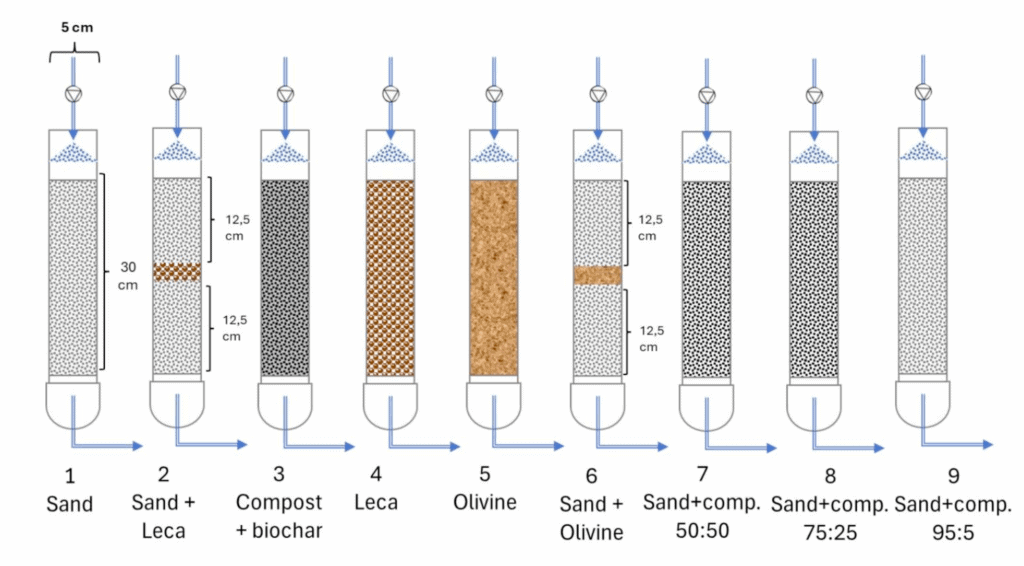
Road traffic is a major contributor to environmental pollution, particularly through contaminated runoff water. To mitigate this pollution, treating road runoff before it impacts the surrounding environment is essential. Roadside infiltration has emerged as an appealing treatment method due to its simplicity, cost-effectiveness, and low maintenance requirements. However, it may not be sufficient for roads with heavy traffic and areas with vulnerable recipients. The present study aimed to identify cost-effective and readily available materials to develop formulations for efficient filter media that can be used to improve roadside ditches. Nine different filter media compositions, comprising sand, compost, LECA, Olivine, and biochar, were tested in laboratory scale column tests. Additionally, the heavy metal adsorption capabilities of the compost, LECA and Olivine were measured in isotherm tests. Among the materials tested, media with Olivine demonstrated the highest performance in both isotherm and column tests. Biochar and LECA also exhibited significant metal removal capabilities. The inclusion of compost in the filter media enhanced heavy metal removal efficiency. All experiments were conducted in controlled laboratory conditions. Based on these findings, large-scale pilot studies using runoff water from the European highway E18 was carried out at a dedicated test station at Bamble.
Read the full publication: Rathnaweera, S. S.; Manamperuma, L. D.; Granøien, J.; Maletskyi, Z.; Åstebøl, S. Ol; Hoell, E.; Vik, E.A. Les VANN digitalt her – Vannforeningen – volume 1/25, page 23